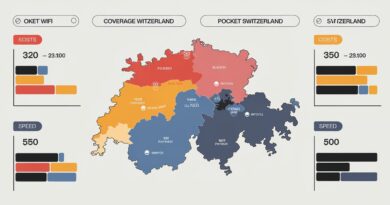Top Blockchain Platforms for App Development in 2025
Blockchain technology is rapidly transforming industries worldwide. It offers a decentralized, secure, and transparent way to manage data, which has led to its widespread adoption across various sectors, including finance, healthcare, logistics, and beyond. As we move into 2025, businesses are increasingly looking to leverage blockchain for app development to streamline operations, reduce costs, and enhance security. In this article, we will explore the top blockchain platforms for app development in 2025, highlighting their unique features, benefits, and potential use cases.
What is Blockchain App Development?
Blockchain app development refers to the process of creating applications that run on blockchain networks, utilizing the decentralized nature of blockchain technology to ensure security, transparency, and immutability. These apps, often called decentralized applications (dApps), can perform a wide range of functions, from financial transactions to supply chain management. The backbone of these apps is the blockchain platform they are built on, making the choice of platform crucial to the app’s functionality, scalability, and security.
As blockchain technology continues to evolve, it’s essential for businesses to choose the right platform to develop their applications. Partnering with a reliable blockchain development company can help ensure the development of secure, scalable, and innovative blockchain apps tailored to your specific needs.
Top Blockchain Platforms for App Development in 2025
1. Ethereum
Ethereum has been the most popular blockchain platform for dApp development since its launch. It supports smart contracts, which are self-executing contracts where the terms of the agreement are written directly into the code. Ethereum’s decentralized structure and large developer community make it a reliable choice for blockchain app development.
Key Features:
- Smart contract functionality
- Large, active developer community
- Strong security and scalability
- Support for decentralized finance (DeFi) applications
Use Cases:
- Financial services and DeFi
- Supply chain management
- Healthcare and identity verification
As Ethereum continues to evolve with Ethereum 2.0, its scalability and energy efficiency will improve, making it an even more powerful platform for blockchain app development in 2025.
2. Solana
Solana is an open-source blockchain platform known for its speed and low transaction costs. It offers a highly scalable solution, making it ideal for applications requiring high throughput and fast processing times. Solana uses a unique proof-of-history (PoH) consensus mechanism, which allows it to handle thousands of transactions per second.
Key Features:
- High scalability and fast transaction speeds
- Low transaction costs
- Proof-of-history (PoH) consensus mechanism
- Strong focus on decentralized finance
Use Cases:
- High-frequency trading and financial applications
- Gaming and NFTs
- Decentralized exchanges (DEX)
Solana’s low-cost and high-speed capabilities make it a strong contender for blockchain app development in 2025, particularly for applications that demand fast transactions.
3. Polkadot
Polkadot is a multi-chain blockchain platform that enables the interconnectivity of different blockchains. It allows various blockchain networks to share information and work together, which can significantly enhance interoperability between decentralized applications (dApps). Polkadot’s ability to connect different blockchains makes it an appealing choice for businesses looking to create complex, multi-chain applications.
Key Features:
- Interoperability between different blockchains
- Scalable and customizable network
- Cross-chain data sharing
- Built-in governance model
Use Cases:
- Multi-chain dApp development
- Cross-chain asset transfers
- Decentralized identity management
Polkadot’s ability to link different blockchain networks gives it a distinct advantage in the development of complex, multi-chain decentralized applications in 2025.
4. Binance Smart Chain (BSC)
Binance Smart Chain is a high-performance blockchain platform designed for decentralized applications and digital asset exchanges. It offers fast and low-cost transactions, making it an attractive option for developers building blockchain-based apps. BSC’s compatibility with the Ethereum Virtual Machine (EVM) allows developers to use Ethereum’s tools and assets on BSC, making it easy to switch between the two networks.
Key Features:
- Low transaction fees
- Fast block times
- EVM compatibility
- Large ecosystem with DeFi, NFTs, and token development
Use Cases:
- DeFi applications and platforms
- NFT marketplaces
- Cross-chain interoperability
As DeFi and NFTs continue to dominate the blockchain space, Binance Smart Chain’s fast and cost-effective transactions make it a popular choice for app developers.
Recommended for you: What is Federated Learning? The Future of Privacy in AI and ML
5. Cardano
Cardano is a blockchain platform known for its scientific approach to app development and strong focus on sustainability. It uses a proof-of-stake (PoS) consensus mechanism, which is more energy-efficient than traditional proof-of-work (PoW) models. Cardano offers a secure and scalable platform with robust governance, making it an appealing choice for enterprises and developers building decentralized applications.
Key Features:
- Proof-of-stake (PoS) consensus mechanism
- Energy-efficient and eco-friendly
- Advanced security and scalability
- Strong academic and research backing
Use Cases:
- Education and certification verification
- Supply chain management
- Identity and financial services
Cardano’s focus on sustainability and scalability makes it an ideal blockchain platform for businesses looking for eco-friendly solutions in 2025.
6. Tezos
Tezos is a self-amending blockchain platform that can evolve and upgrade itself without requiring a hard fork. It focuses on security and governance, allowing token holders to participate in decision-making processes. Tezos is particularly popular in sectors where compliance and security are crucial, such as finance and healthcare.
Key Features:
- Self-amending blockchain
- Strong governance and security features
- Energy-efficient and scalable
- Smart contract capabilities
Use Cases:
- Digital art and NFTs
- Financial applications and asset management
- Healthcare and insurance
Tezos’ ability to upgrade itself without a hard fork and its strong governance features make it an attractive choice for secure, compliant applications in 2025.
Check these out too: What is IoT App Development? Benefits, Features, and Use Cases
How to Choose the Right Blockchain Platform for Your App?
Choosing the right blockchain platform for your app depends on several factors, including the app’s purpose, scalability requirements, and transaction costs. Businesses should also consider factors such as security, developer community support, and the platform’s ability to integrate with other technologies.
Working with a reliable blockchain development company can help you navigate the complexities of blockchain technology and choose the best platform based on your specific needs. A skilled blockchain development services provider will help you build a secure, scalable, and innovative blockchain app tailored to your business.
Conclusion
As blockchain technology continues to evolve, selecting the right platform for app development is crucial for ensuring the success and scalability of your project. In 2025, Ethereum, Solana, Polkadot, Binance Smart Chain, Cardano, and Tezos will remain among the top blockchain platforms for dApp development. Each platform offers unique features that cater to different use cases, from decentralized finance to supply chain management and NFTs.
By partnering with a leading blockchain development company, businesses can leverage the strengths of these platforms to create innovative, secure, and scalable blockchain applications. Blockchain technology is set to redefine industries in the years ahead, and staying ahead of the curve by adopting the right platform is key to success.
Readers also enjoyed: Embracing AI: Examples of AI in Everyday Life




